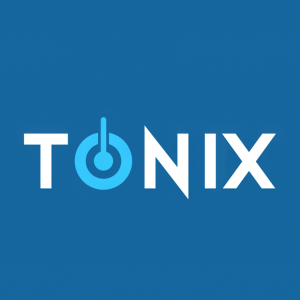Tonix Pharmaceuticals Announces Positive Topline Results from Phase 1 Trial for TNX-1500, a Next Generation anti-CD40L mAb Candidate for Prevention of Kidney Transplant Rejection and Treatment of Autoimmune Diseases
Rhea-AI Summary
Tonix Pharmaceuticals (TNXP) announced positive topline results from its Phase 1 trial of TNX-1500, a next-generation anti-CD40L monoclonal antibody for kidney transplant rejection prevention and autoimmune disease treatment. The trial demonstrated that TNX-1500 effectively blocked primary and secondary antibody responses at 10 mg/kg and 30 mg/kg doses, with a mean half-life of 34-38 days supporting monthly dosing.
The drug showed a favorable safety profile and was generally well-tolerated. The only notable treatment-emergent adverse event was mild aphthous ulcer in three participants. Importantly, no thromboembolic events were reported. The study involved 26 participants across three dosing cohorts (3 mg/kg, 10 mg/kg, and 30 mg/kg), with 24 completing the trial.
Following these results, Tonix plans to discuss with the FDA in an End-of-Phase 1 meeting before proceeding with Phase 2 trials in kidney transplant recipients.
Positive
- Successful Phase 1 trial results showing efficacy in blocking antibody responses
- Long half-life of 34-38 days enabling monthly dosing schedule
- Favorable safety profile with no serious adverse events
- Clear path forward to Phase 2 trials
Negative
- Mild adverse events (aphthous ulcers) reported in three participants
- Two participants discontinued the trial (one withdrew consent, one lost to follow-up)
News Market Reaction
On the day this news was published, TNXP declined 24.97%, reflecting a significant negative market reaction.
Data tracked by StockTitan Argus on the day of publication.
Results from the Phase 1 single ascending dose study support proceeding to develop a Phase 2 trial for the prevention of kidney transplant rejection
TNX-1500 blocked the primary and secondary antibody responses to a test antigen at the 10 mg/kg and 30 mg/kg i.v. doses
TNX-1500 showed mean half-life of 34-38 days for the 10 mg/kg and 30 mg/kg doses supporting monthly dosing for future efficacy trials
TNX-1500 was generally well-tolerated with a favorable safety profile
Anti-CD40L has multiple potential indications in addition to solid organ and bone marrow transplantation including autoimmune diseases: potential pipeline in a product
CHATHAM, N.J., Feb. 06, 2025 (GLOBE NEWSWIRE) -- Tonix Pharmaceuticals Holding Corp. (Nasdaq: TNXP) (Tonix or the Company), a fully-integrated biopharmaceutical company with marketed products and a pipeline of development candidates, today announced positive topline results from its Phase 1, single ascending dose trial of TNX-1500 (Fc-modified humanized anti-CD40L monoclonal antibody, or mAb)* in healthy participants. The objectives of the Phase 1 trial were to assess the safety, tolerability, pharmacokinetics, and pharmacodynamics of intravenous TNX-1500, as well as to support dosing in a planned Phase 2 trial in kidney transplant recipients.
“There remains a significant need for new agents with improved activity and safety to prevent transplant rejection and treat autoimmune diseases,” said Seth Lederman, M.D., Chief Executive Officer of Tonix Pharmaceuticals. “First generation anti-CD40L mAb therapy, particularly ruplizumab (a.k.a., humanized 5c8 or BG9588) showed activity in modulating autoimmunity and rejection in allo- and xeno-transplantation but was limited by an increased risk of thrombosis.1-3 Tonix created TNX-1500, a next generation anti-CD40L mAb, by reengineering the Fc region of ruplizumab, to preserve activity with improved safety. The results of the Phase 1 study indicate that TNX-1500 has met these design objectives. We believe the results of this study and our prior animal studies4,5 indicate that TNX-1500 is potentially best-in-class among next-generation anti-CD40L mAbs in development.”
Gregory Sullivan, M.D., Chief Medical Officer of Tonix Pharmaceuticals said, “Topline results from the TNX-1500 Phase 1 study showed TNX-1500 at the 10 mg/kg and 30 mg/kg doses blocked both the primary and secondary antibody responses to a test antigen. The pharmacokinetic data support monthly dosing at doses of 10 mg/kg or above. Based on these findings, we are eager to advance this promising candidate into a Phase 2 efficacy study. We believe TNX-1500 has the potential to prevent organ transplant rejection and improve graft survival with reduced long-term toxicity burden relative to current immunosuppressive regimens.”
Methods and Topline Results
- Dosing: TNX-1500 solution was infused i.v. over a period of one hour to achieve doses of 3 mg/kg, 10 mg/kg, and 30 mg/kg. Participants were observed in the clinic for one day and followed with periodic clinic visits to Day 120.
- Keyhole Limpet Hemocyanin (KLH) Challenge: To evaluate the immune modulation potency of TNX-1500, participants received an antigen challenge with KLH (Immucothel®) administered subcutaneously (SC) on Day 2 and Day 29 of the study.
- Disposition: A total of 26 participants were enrolled in three Cohorts (3 mg/kg, 10 mg/kg, and 30 mg/kg). A total of 24 participants completed the study and two discontinued early (one placebo participant was lost to follow-up and one on TNX-1500 withdrew consent).
- Tolerability: TNX-1500 was generally well-tolerated with a favorable safety and tolerability profile. The only treatment-emergent adverse event (TEAE) occurring in ≥ 3 participants among all TNX-1500 groups was aphthous ulcer, occurring in one participant each in the 3 mg/kg, 10 mg/kg, and 30 mg/kg groups; all were rated as mild, possibly related, and resolved in 2-10 days. There were no TEAEs assessed as related to KLH administration. No TEAEs led to study discontinuation and there were no serious adverse events. There were no thromboembolic events, which were prespecified as TEAEs of special interest.
- Pharmacodynamics: TNX-1500 at 10 mg/kg and 30 mg/kg blocked both the primary and secondary anti-KLH Ab responses, evidenced by the mean Ab level at all sampled timepoints (through Day 120) being below the lower limit of quantitation (400 µg/L). TNX-1500 at 3 mg/kg blocked the primary response to KLH Day 2 challenge and reduced the peak secondary response to KLH Day 29 challenge by approximately two thirds (
69% ) relative to the peak response to placebo. - Pharmacokinetics: The mean (SD) half-life of TNX-1500 was: 3 mg/kg, 19.6 (9.29) days; 10 mg/kg, 37.8 (5.46) days; and 30 mg/kg, 33.7 (4.83) days.
Tonix plans to discuss these results with the U.S. Food and Drug Administration (FDA) in an End-of-Phase 1 meeting. Pending alignment with the FDA, a Phase 2 study of TNX-1500 in kidney transplant recipients will be pursued.
About TNX-1500
TNX-1500 (Fc-modified humanized anti-CD40L mAb) is a humanized monoclonal antibody that binds and functionally inhibits the CD40-ligand (CD40L), also known as CD154. TNX-1500 is being developed for the prevention of allograft and xenograft rejection, for the prevention of graft-versus-host disease (GvHD) after hematopoietic stem cell transplantation (HCT) and for the treatment of autoimmune diseases. Two published articles in the American Journal of Transplantation demonstrate TNX-1500 prevents rejection, prolongs survival and preserves graft function as a single agent or in combination with other drugs in non-human primate renal and heart allografts. 4,5
*TNX-1500 is an investigational new biologic and is not approved for any indication
Citations
- Lederman S, et al, J Exp Med. 1992;175(4):1091-101. doi: 10.1084/jem.175.4.1091. PMID: 1348081; PMCID: PMC2119166.
- Boumpas DT, et. al. Arthritis Rheum. 2003;48(3):719-27. doi: 10.1002/art.10856. PMID: 12632425.
- Pierson RN 3rd, et al. Transplantation. 1999;68(11):1800-5. doi: 10.1097/00007890-199912150-00026. PMID: 10609959.
- Lassiter G, et al. Am J Transplant. 2023;23(8):1171-1181. doi: 10.1016/j.ajt.2023.03.022.
- Miura S, et al. Am J Transplant. 2023;23(8):1182-1193. doi: 10.1016/j.ajt.2023.03.025.
Tonix Pharmaceuticals Holding Corp.*
Tonix is a fully-integrated biopharmaceutical company focused on transforming therapies for pain management and vaccines for public health challenges. Tonix’s development portfolio is focused on central nervous system (CNS) disorders. Tonix’s priority is to advance TNX-102 SL, a product candidate for the management of fibromyalgia, for which an NDA was submitted based on two statistically significant Phase 3 studies for the management of fibromyalgia and for which a PDUFA (Prescription Drug User Fee act) goal date of August 15, 2025 has been assigned for a decision on marketing authorization. The FDA has also granted Fast Track designation to TNX-102 SL for the management of fibromyalgia. TNX-102 SL is also being developed to treat acute stress reaction and acute stress disorder under a Physician-Initiated IND at the University of North Carolina in the OASIS study funded by the U.S. Department of Defense (DoD). Tonix’s CNS portfolio includes TNX-1300 (cocaine esterase), a biologic in Phase 2 development designed to treat cocaine intoxication that has FDA Breakthrough Therapy designation, and its development is supported by a grant from the U.S. National Institute on Drug Abuse. Tonix’s immunology development portfolio consists of biologics to address organ transplant rejection, autoimmunity and cancer, including TNX-1500, which is an Fc-modified humanized monoclonal antibody targeting CD40-ligand (CD40L or CD154) being developed for the prevention of allograft rejection and for the treatment of autoimmune diseases. Tonix also has product candidates in development in infectious disease, including a vaccine for mpox, TNX-801. Tonix recently announced a contract with the U.S. DoD’s Defense Threat Reduction Agency (DTRA) for up to
* Tonix’s product development candidates are investigational new drugs or biologics; their efficacy and safety have not been established and have not been approved for any indication.
Zembrace SymTouch and Tosymra are registered trademarks of Tonix Medicines. All other marks are property of their respective owners.
This press release and further information about Tonix can be found at www.tonixpharma.com.
Forward Looking Statements
Certain statements in this press release are forward-looking within the meaning of the Private Securities Litigation Reform Act of 1995. These statements may be identified by the use of forward-looking words such as “anticipate,” “believe,” “forecast,” “estimate,” “expect,” and “intend,” among others. These forward-looking statements are based on Tonix's current expectations and actual results could differ materially. There are a number of factors that could cause actual events to differ materially from those indicated by such forward-looking statements. These factors include, but are not limited to, risks related to the failure to obtain FDA clearances or approvals and noncompliance with FDA regulations; risks related to the failure to successfully market any of our products; risks related to the timing and progress of clinical development of our product candidates; our need for additional financing; uncertainties of patent protection and litigation; uncertainties of government or third party payor reimbursement; limited research and development efforts and dependence upon third parties; and substantial competition. As with any pharmaceutical under development, there are significant risks in the development, regulatory approval and commercialization of new products. Tonix does not undertake an obligation to update or revise any forward-looking statement. Investors should read the risk factors set forth in the Annual Report on Form 10-K for the year ended December 31, 2023, as filed with the Securities and Exchange Commission (the “SEC”) on April 1, 2024, and periodic reports filed with the SEC on or after the date thereof. All of Tonix's forward-looking statements are expressly qualified by all such risk factors and other cautionary statements. The information set forth herein speaks only as of the date thereof.
Investor Contact
Jessica Morris
Tonix Pharmaceuticals
investor.relations@tonixpharma.com
(862) 904-8182
Peter Vozzo
ICR Healthcare
peter.vozzo@icrhealthcare.com
(443) 213-0505
Media Contact
Ray Jordan
Putnam Insights
ray@putnaminsights.com
(949) 245-5432
Indication and Usage
Zembrace® SymTouch® (sumatriptan succinate) injection (Zembrace) and Tosymra® (sumatriptan) nasal spray are prescription medicines used to treat acute migraine headaches with or without aura in adults who have been diagnosed with migraine.
Zembrace and Tosymra are not used to prevent migraines. It is not known if Zembrace or Tosymra are safe and effective in children under 18 years of age.
Important Safety Information
Zembrace and Tosymra can cause serious side effects, including heart attack and other heart problems, which may lead to death. Stop use and get emergency help if you have any signs of a heart attack:
- discomfort in the center of your chest that lasts for more than a few minutes or goes away and comes back
- severe tightness, pain, pressure, or heaviness in your chest, throat, neck, or jaw
- pain or discomfort in your arms, back, neck, jaw or stomach
- shortness of breath with or without chest discomfort
- breaking out in a cold sweat
- nausea or vomiting
- feeling lightheaded
Zembrace and Tosymra are not for people with risk factors for heart disease (high blood pressure or cholesterol, smoking, overweight, diabetes, family history of heart disease) unless a heart exam shows no problem.
Do not use Zembrace or Tosymra if you have:
- history of heart problems
- narrowing of blood vessels to your legs, arms, stomach, or kidney (peripheral vascular disease)
- uncontrolled high blood pressure
- hemiplegic or basilar migraines. If you are not sure if you have these, ask your provider.
- had a stroke, transient ischemic attacks (TIAs), or problems with blood circulation
- severe liver problems
- taken any of the following medicines in the last 24 hours: almotriptan, eletriptan, frovatriptan, naratriptan, rizatriptan, ergotamines, or dihydroergotamine. Ask your provider for a list of these medicines if you are not sure.
- are taking certain antidepressants, known as monoamine oxidase (MAO)-A inhibitors or it has been 2 weeks or less since you stopped taking a MAO-A inhibitor. Ask your provider for a list of these medicines if you are not sure.
- an allergy to sumatriptan or any of the components of Zembrace or Tosymra
Tell your provider about all of your medical conditions and medicines you take, including vitamins and supplements.
Zembrace and Tosymra can cause dizziness, weakness, or drowsiness. If so, do not drive a car, use machinery, or do anything where you need to be alert.
Zembrace and Tosymra may cause serious side effects including:
- changes in color or sensation in your fingers and toes
- sudden or severe stomach pain, stomach pain after meals, weight loss, nausea or vomiting, constipation or diarrhea, bloody diarrhea, fever
- cramping and pain in your legs or hips; feeling of heaviness or tightness in your leg muscles; burning or aching pain in your feet or toes while resting; numbness, tingling, or weakness in your legs; cold feeling or color changes in one or both legs or feet
- increased blood pressure including a sudden severe increase even if you have no history of high blood pressure
- medication overuse headaches from using migraine medicine for 10 or more days each month. If your headaches get worse, call your provider.
- serotonin syndrome, a rare but serious problem that can happen in people using Zembrace or Tosymra, especially when used with anti-depressant medicines called SSRIs or SNRIs. Call your provider right away if you have: mental changes such as seeing things that are not there (hallucinations), agitation, or coma; fast heartbeat; changes in blood pressure; high body temperature; tight muscles; or trouble walking.
- hives (itchy bumps); swelling of your tongue, mouth, or throat
- seizures even in people who have never had seizures before
The most common side effects of Zembrace and Tosymra include: pain and redness at injection site (Zembrance only); tingling or numbness in your fingers or toes; dizziness; warm, hot, burning feeling to your face (flushing); discomfort or stiffness in your neck; feeling weak, drowsy, or tired; application site (nasal) reactions (Tosymra only) and throat irritation (Tosymra only).
Tell your provider if you have any side effect that bothers you or does not go away. These are not all the possible side effects of Zembrace and Tosymra. For more information, ask your provider.
This is the most important information to know about Zembrace and Tosymra but is not comprehensive. For more information, talk to your provider and read the Patient Information and Instructions for Use. You can also visit https://www.tonixpharma.com or call 1-888-869-7633.
You are encouraged to report adverse effects of prescription drugs to the FDA. Visit www.fda.gov/medwatch, or call 1-800-FDA-1088.








